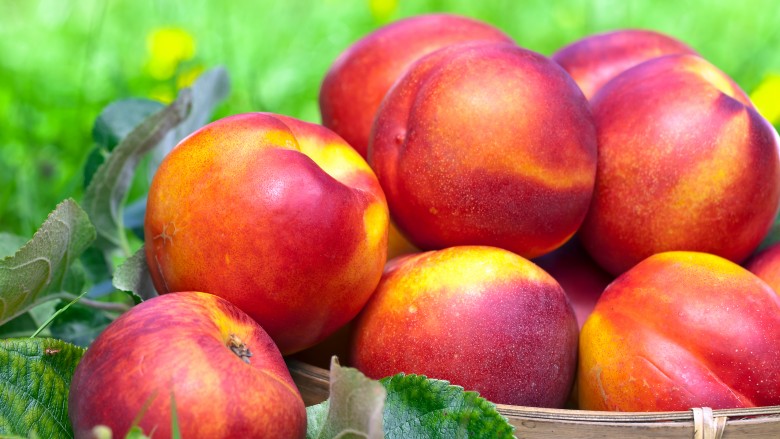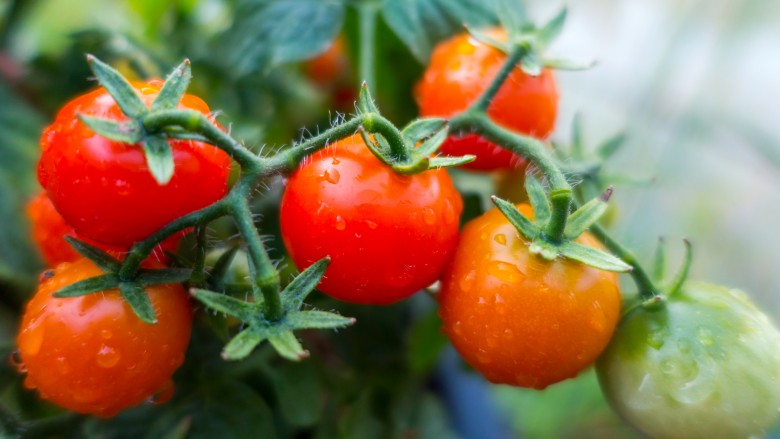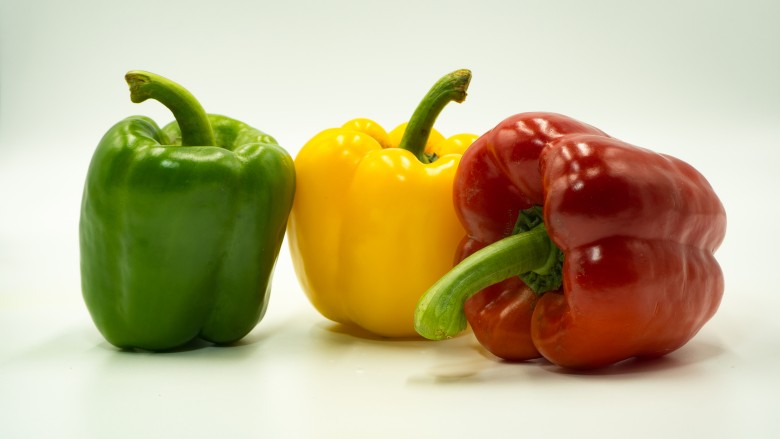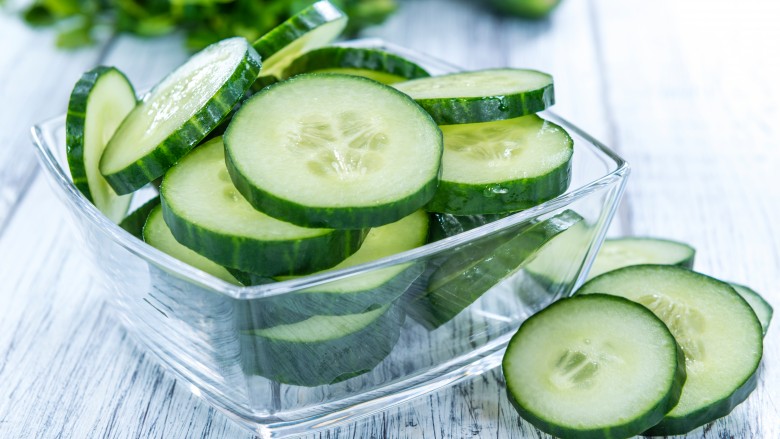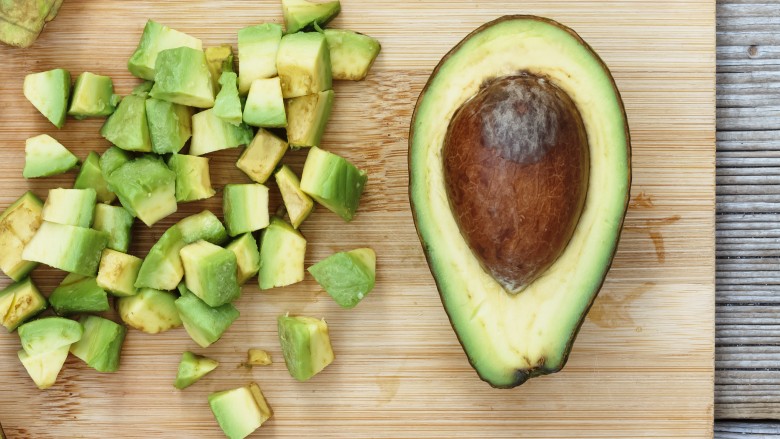Foods You Should Definitely Swap For Organic
When it comes to eating organic, we all know the advantages, but it's not always within our means. Whether your grocery store only carries a small section or it's a stretch to make it fit into your monthly food budget, it's understandable that we can't all eat organic all of the time.
With that said, when it comes to eating organic versus non-organic, there are some foods we need to prioritize eating organic as much as possible. These foods are referred to as the "dirty dozen." They are the foods that have the highest levels of pesticide residue, which has been linked to a variety of health issues. The list is updated each year, if needed, by the Environmental Working Group.
Strawberries
Strawberries are a definite favorite in my house, whether I'm eating them fresh and in-season, or enjoying them frozen blended into my morning smoothie. After hearing that a single sample of strawberries "had residues of 17 different pesticides" according to the EWG, those strawberries are organic, hands down.
Apples
Growing up, I always went apple picking with my family every year; it was one of our favorite fall activities and quite honestly, it still is. But what I never knew was that apples are consistently near the top of this "dirty dozen" list year after year, only recently being overtaken by strawberries. If you've ever been apple picking, then I'm sure you can imagine why.
Apples are prone to various fungi and bug infestations, which often leads farmers to spraying their trees to preserve the nature of the apples. Needless to say, when I'm buying at the stores, I buy organic, and as for my apple picking days, they aren't over, but I do talk to the farmers and try to pick an orchard that are not quite so chemical happy.
Nectarines
This late summer fruit is definitely one of my favorites and if you didn't know you should be buying them organic, you should. "The EWG found that 97 percent of all conventional nectarines carried at least one pesticide residue," according to the EWG (via Cooking Light). Save yourself the worry and wonder, go organic.
Peaches
Peaches, with their delicate and fuzzy skin, are quite susceptible to mold and pests, making them a target for conventional farmers to use various pesticides to save their crop. While most pesticides on peaches are "found at levels well below EPA tolerances," according to the Chicago Tribune, it's still recommended to go organic, as those levels aren't always consistent.
Celery
Celery is a kitchen staple, often being used in homemade soups, stews, stir-fries, and of course everyone's favorite, ants on a log, but what if I told you that the USDA Pesticide Data Program found over 60 pesticide residues on celery? I bet you'll be buying organic from now on, won't you? Yeah, so will I.
Grapes
I always forget that grapes are on the dirty dozen list, often reaching for the bag of conventional grapes at the grocery store, but that's about to change. After hearing that a single grape sample sample contained 15 pesticides, I don't think I'll be forgetting where grapes fall on the dirty vs. clean spectrum.
Cherries
Your homemade cherry pie is about to get an organic makeover. Cherries may be one of summer's favorite fruits, but coming in at number seven on the dirty dozen list, they're another fruit to watch and make sure you're getting organic. According to CNN, "nearly three-fourths of all the produce samples tested by the USDA had pesticide residue." Yeah, I'll go organic.
Spinach
Spinach is another favorite healthy eating staple in most kitchens, whether you're tossing it in for a lunchtime salad, blending it into your morning juice or smoothie, or wilting it with some olive oil and garlic as part of dinner. Regardless of how you're using it, you need to make sure you're buying organic every single time. Spinach is known to have more than 50 different pesticides. If you're like me and often buy frozen, you still need to buy organic as the levels of pesticides are nearly the same.
Tomatoes and cherry tomatoes
If you've ever had your own garden and grown your own tomatoes, you know they don't even begin to compare to what you buy in the store. Garden fresh tomatoes are sweet, juicy, and oh-so-flavorful. The ones you buy in the store are usually bland, hard and pesticide-filled. During the summer months, I grow and fully enjoy my own tomato crop but when the season ends, I very rarely will buy tomatoes anymore. I'll get canned varieties for soups and stews, and if I really need a tomato for something I'm making that week, I choose organic.
Sweet bell peppers
Regardless of the color, green, yellow, orange, red, or purple, sweet bell peppers are a produce you always grab off the organic shelf, coming in with nearly 50 different pesticides. While hot peppers don't fall into the top 12, they fall on the extended "dirty dozen plus" list and should also be of the organic variety when purchased.
Potatoes
I hope you're sitting down for this... "The average potato had more pesticides by weight than any other food." As you can imagine, that doesn't sit well. Whether you're going to make mashed or baked potatoes, eat the skin or leave it behind, sauté or scalloped hasselback, do yourself a favor and go organic. It's just not worth it.
Cucumbers
Cucumbers are one of my favorite produce items, especially when they come fresh from the garden in the summer. When I'm not growing my own garden cucumbers though, I'm buying organic. Cucumbers have been known to have 86 pesticide residues according to the USDA. If that terrifies you as much as it does me, then you'll be buying organic too. Peeling the skin off your cucumbers with a vegetable peeler, is one way that you could potentially lessen the number of pesticides you may be ingesting.
The clean 15
Before you go worrying that you need to put the entire organic produce section in your cart and can never eat another piece of convention fruit or vegetable again, rest assured, there are other items that are deemed safer, according to the Environmental Working Group; these are referred to as the Clean 15. Among these items include avocados, sweet corn, onions, pineapples, and cauliflower.
The point of this isn't to scare you or make you feel like you're going to lose your entire paycheck to buying organic, it's to provide a base of knowledge so you can go into your next grocery shopping trip better prepared and start taking the small, necessary steps to eating healthier for you and your family. Meanwhile, don't forget to thoroughly wash all produce; while that won't remove all pesticide residue, it will help reduce the amount you may ingest.




